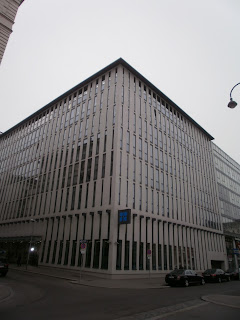In line with market expectations and persistent rumours heard here all morning in Vienna, OPEC has agreed to officially maintain its crude production quota at 30 million barrels per day (bpd) at its 160th meeting, thereby legitimising the increase the Saudis triggered after the acrimony of the last meeting in June.
The OPEC Secretary General Abdalla Salem El-Badri said the heightened price volatility witnessed during the course of 2011 is predominantly a reflection of increased levels of speculation in the commodities markets, exacerbated by geopolitical tensions, rather than a result of supply/demand fundamentals.
Ministers also expressed concern regarding the downside risks facing the global economy including the Euro-zone crisis, persistently high unemployment in the advanced economies, inflation risk in emerging markets and planned austerity measures in OECD economies.
“All these factors are likely to contribute to lower economic growth in the coming year. Although world oil demand is forecast to increase slightly during the year 2012, this rise is expected to be partially offset by a projected increase in non-OPEC supply,” El-Badri noted.
Hence, OPEC decided to maintain the production level of 30 million bpd curiously “including production from Libya, now and in the future”. The quota would be reviewed in six months and does not include Iraqi supply. The cartel also agreed that its members would, if necessary, take steps including voluntary downward adjustments of output to ensure market balance and reasonable price levels.
The last bit stirred up the scribes especially as El-Badri, himself a Libyan, noted that his country’s production will be back to 1 million bpd “soon” followed by 1.3 million bpd end-Q1 2012, and 1.6 million at end of Q2 2010; the last figure being the pre-war level.
Despite persistent questioning, the Secretary General insisted that Libyan production will be accommodated and 30 million bpd is what all members would be asked to adhere to formally. He added that the individual quotas would be reset when Libyan production is back to pre-war levels.
El-Badri also described the "meeting as amicable, successful and fruitful" and that OPEC was not in the business of defending any sort of crude price. “We always have and will leave it to market mechanisms,” he concluded.
Iran's Rostem Ghasemi said the current OPEC ceiling was suitable for consumers and producers. “We and the Saudis spoke in one voice.” He also said his country was "cool" on possible oil export embargoes but neither had any news nor any inclination of embargoes being imposed against his country yet. OPEC next meets in Vienna on June 14th, 2012.
Following OPEC’s move, the Oilholic turned the floor over to some friends in the analyst community. Jason Schenker, President and Chief Economist of Prestige Economics and a veteran at these events, believes OPEC is addressing a key question of concern to its members with the stated ceiling.
“That question is how to address the deceleration of global growth and pit that against rising supply. And what OPEC is doing is - not only leaving the production quota essentially unchanged but also holding it at that unchanged level,” Schenker said.
“That question is how to address the deceleration of global growth and pit that against rising supply. And what OPEC is doing is - not only leaving the production quota essentially unchanged but also holding it at that unchanged level,” Schenker said.
“When the Libyan production does indeed come onstream meaningfully or to pre-war levels between now and Q2 or Q3 of 2012, smart money would be on an offsetting taking place via a possible cut from Saudi Arabia,” he concluded.
Myrto Sokou, analyst at Sucden Financial Research, noted that an increase (or rather the acknowledgement of an increase) in the OPEC production limit after three years might add further downward pressure to the crude price for the short-term with a potential for some correction lower in crude oil prices.
“On top of this, the uncertain situation in the Eurozone continues to dominate the markets, weighting heavily on most equity and commodity prices and limiting risk appetite,” he said. And on that note, it is goodbye from the OPEC HQ. Keep reading, keep it ‘crude’!
© Gaurav Sharma 2011. Photo: OPEC's 160th meeting concludes in Vienna, Austria - seated (R to L) OPEC Secretary General Abdalla Salem El-Badri and President Rostem Ghasemi © Gaurav Sharma 2011.

